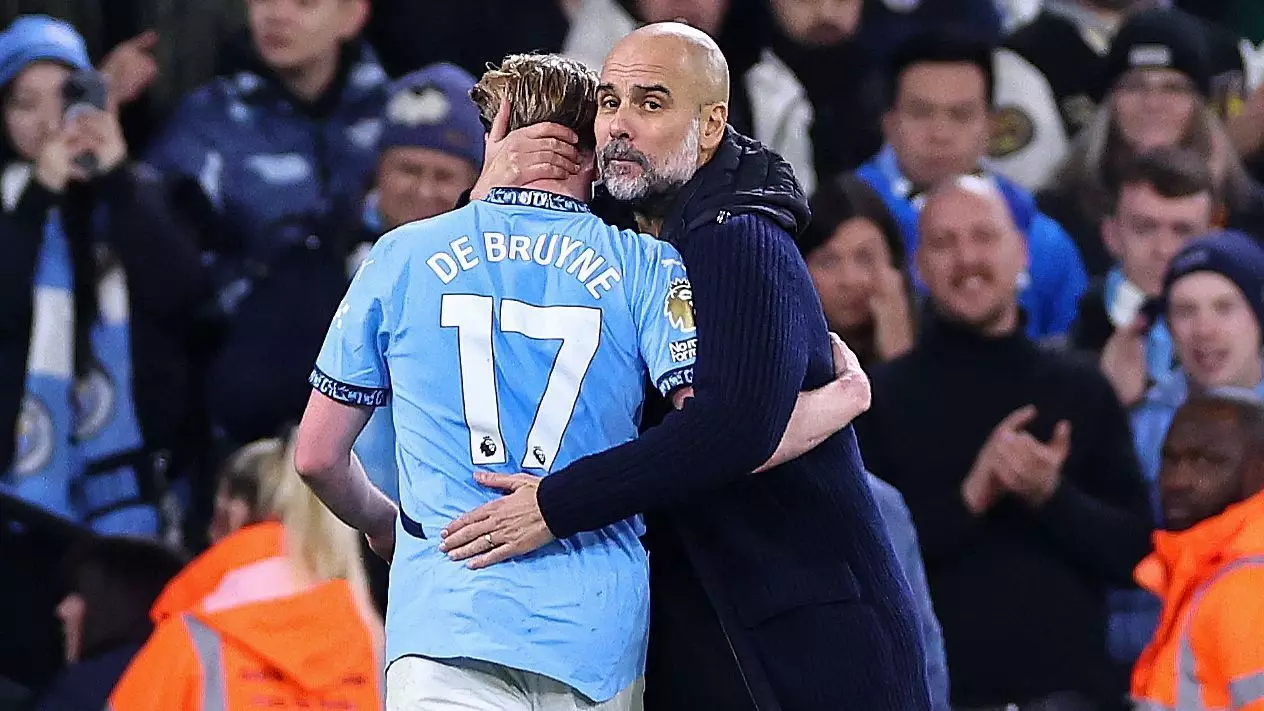Pep Guardiola stands at the crossroads, watching as the clock ticks down the remaining fixtures of the Premier League season. With Manchester City currently positioned fifth in the table and only six matches left to regain their footing, the specter of missing out on next season’s Champions League looms large. The stakes couldn’t be higher: a spot in Europe’s elite competition not only enhances the prestige of a club but also serves as a significant draw for potential signings during the transfer window. As City prepares to face Everton, the tension encapsulates a wider narrative of ambition versus reality in modern football.
Guardiola’s words are nothing short of prophetic. The prospect of missing out on Champions League football does not merely dampen a club’s competitive edge; it fundamentally alters the landscape of player recruitment. The allure of competing with the continent’s best teams is undeniable, and players are acutely aware of this fact. When clubs like Chelsea and Aston Villa are just a point behind, the pressure mounts, making every match critical. The reality is that plans for squad reinvention hinge not only on investment but also on the ability to attract top-tier talent underpinned by the guarantee of Champions League football.
Recruitment Fears: Will Key Targets Resist?
Potential transfer targets are undoubtedly weighing their options. Bayer Leverkusen’s Florian Wirtz is cited as a possible successor to the legendary Kevin De Bruyne. However, with significant interest from European powerhouses like Real Madrid and Bayern Munich—clubs synonymous with Champions League glory—Guardiola’s assertion rings true. “If they have many options, I’m pretty sure the players take a look at the ones in the Champions League,” he noted. The reality of modern football is that financial muscle is often eclipsed by the magnetic pull of prestige, highlighting an ironic truth within the upper echelons of the sport: money may not always buy success.
The importance of ambiguity in Guardiola’s remarks about player interest sheds light on the club’s precarious position. In a world where elite athletes are not only motivated by financial compensation but also by the opportunity to showcase their skills on the biggest stages, the absence of Champions League contention could quite literally leave City out in the cold. Players could prioritize developmental growth rather than lucrative contracts; thus, the argument for access to elite football becomes a vital consideration.
Squad Dynamics and the Need for Reliability
Despite the ongoing uncertainties, Guardiola’s focus on squad dynamics remains unwavering. He has historically favored a tight-knit group of players who understand his philosophy and playstyle. However, this season has revealed flaws in that approach, especially as injuries have plagued the squad. Guardiola’s lament about players being left at home, unable to contribute meaningfully, is emblematic of a deeper issue: reliability. “The most important thing is analyzing who will be more reliable,” he emphasized, indicating a substantial reassessment of personnel may be on the horizon.
Critics may argue that City’s heavy investment of £180 million in January should have sufficed for a title challenge. Yet, the fallout from injuries and poor performances has made it clear that a reevaluation of key positions is critical. If pivotal players cannot consistently perform due to fitness concerns, the roster’s depth becomes an immediate worry. A bigger squad may appear to solve problems on the surface, but it also risks fostering discontent among those relegated to the periphery. This tenuous balance between squad size and player morale may dictate how City navigates its transition into the next season.
The Future Unwritten
With uncertainty cloaking both their league position and recruitment strategy, the future for Manchester City seems precarious. As the club seeks to reshape its identity while facing potential setbacks, Guardiola’s leadership will be tested like never before. The decisions made in the coming weeks will be crucial, not just for results on the pitch, but also for the club’s long-term vision. The fight for Champions League qualification is about much more than trophies; it is about the very fabric of what Manchester City aims to represent in an ever-evolving football landscape.

